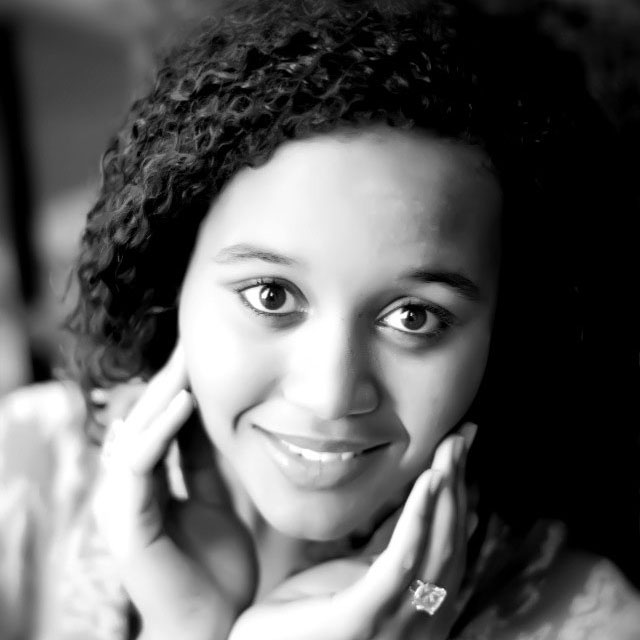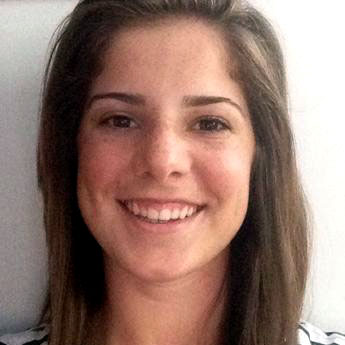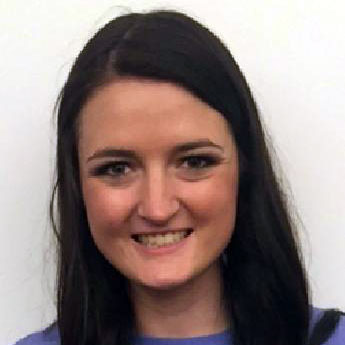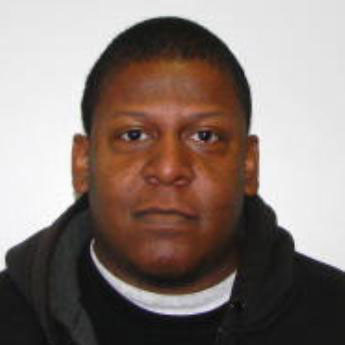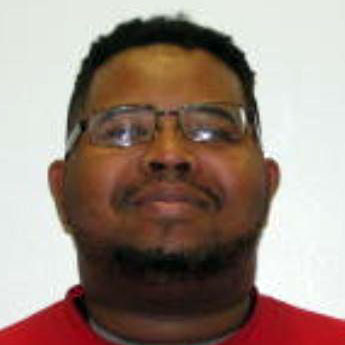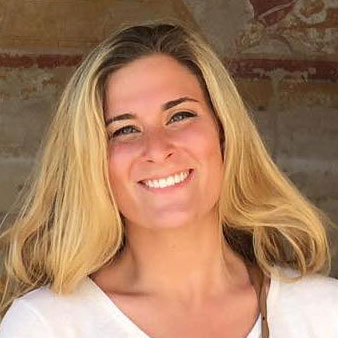Student Perspectives
Why do you want to earn the certificate in PJCT?
What do you hope to do with it after you graduate?
Question added to PEAC 550, “Service Learning in Peacebuilding,” discussion of Robert Coles, The Call of Service. These began in February, 2016 and continued through succeeding semesters.
"I have chosen to earn a PJCT certificate because I wanted to expand my view. My personal beliefs sometimes don’t always fall into a PJCT mindset and these classes have helped see an alternative point of view. I hope to use the certificate to present alternative solutions to common issues that may be commonly mishandled. I think the service class has also highlighted the need to continue to do impactful service and mentorship in my future."
"I would like to earn the PJCT certificate so that I can be more informed during facilitations and workshops that I conduct for my internship. I think this certificate will allow me to understand different perspectives more fully and connect on a more personal and lasting way with those who attend workshops, and more generally with those who would like to engage me in dialogue about peace/justice issues."
"I built the PJCT certificate into my major because of how valuable it will be later on down the road when, hopefully, I’m working in interreligious and interpersonal ministries. It happens to fit really well into my degree concept, “Interfaith Mediation,” and is also a really good way to extend interdisciplinary studies to my degree beyond my Liberal Studies classes."
"I want to earn this certificate as a way of better understanding people and the world. I plan on using this as a foundation for future job/schooling/etc. and leading to implementation in my life as a way to help serve various people. It has helped me open my eyes to things I was not seeing and to update my opinion on certain issues."
"I want to earn this certificate to give myself a better understanding of who I want to be and should be when I begin my career. Having a background in PJCT will allow me to approach situations differently and more effectively than others. I plan to use this to allow myself to come to better solutions rather than just making assumptions and not using these critical thinking skills. Having a different perspective will allow a chance for the victims and suspects to have a moment for me to have better understanding. These skills from PJCT will allow me to be a better police officer."
"The PJCT certificate can be very versatile. I am not only interested in looking at lobbyist careers but also in mediation. This certificate is not only for a job possibility, but also helps in everyday communication and conflict management."
"At first I just thought they were interesting classes and they fell in line with my degree. However, after PEAC 350 (Mediation) I felt like I can really use the tools I have learned in these classes past undergrad. I hope to go to law school and these classes have given me a new perspective on things. After these classes I feel like I am better prepared for the challenges ahead."
"At first I wanted it so that it would be something nice to add to my resume. However, after being in my PEAC classes, I wanted it more because it’s a nice reminder of the good I’ve been lucky to be a part of. I’m not sure that I would have done volunteer work or cared about making an impact in the community so passionately as I do now if it wasn’t for working towards this certificate."
"I wanted to earn the PJCT certificate because the ideals of the program are very important to me. I am also doing the Social Change minor, and I am learning a lot form both. It also makes me think more in depth about my service experiences. In the future, I plan to continue working with kids and non-profits."
"First, I was interested in peace course and other social problems (discrimination, race/class problems, gender, etc.) then I wanted to learn more systematically, that’s why I joined this certificate program. I don’t know how the certificate will help me. I will continue doing services in the future after this course though."
"I like how it is applicable to all subjects of study and aspects of life. I want to go into public communication including sustainability, and I believe that being mindful of culture, conflict, etc. will help with that."
"I want to earn the certificate for two reasons. The first is because I aim at working in counseling and I believe lots of the skills I have practiced in this program will transfer into that career. Examples are active listening, positive/negative peace, and conflict communication. A somewhat less important reasons is that it looks good on resumes for grad schools and employers."
Repeated these questions in February, 2017. Responses included these:
"To better myself and to understand other perspectives and views. Being certified in peace is going to give you a better outlook on the world. It will help me get a job as a mediator at a law firm. I also hope to use what I learned every day of my life from talking about sensitive subjects to not yelling at someone who cuts me off on the highway."
"When traveling to Bosnia – Herzegovina as part of PSYC 408: ISLP & RP, I learned a lot about conflict resolution and conflict transformation. I expressed my interest in learning more about peace studies to my professor during the trip, Dr. Leonard. She recommended I check out the certificate. I really wanted to learn more about social justice issues and non-violent conflict resolution, in addition to needing more courses to fill my full-time status as I had already completed my degree. It was a good fit for me, and I’m very happy with that decision today."
"When I graduate I am taking a gap year before going on to medical school (hopefully), so I hope to get more involved with the community. I’m especially considering applying for AmeriCorp, I feel the skills I have learned not just from PEACE 325 and 350, but also my service learning as part of Louisville Grows will help me to connect with the people I will be working with. These skills will also make me a better leader in whatever opportunity I find myself in in the future."
"I want to earn the certificate in Peace, Justice, and Conflict Transformation because I believe the concepts I have learned thus far, in terms of positive and negative peace, self-transformation, conflict resolution, and methods for social change, are interdisciplinary in the academic field and on a more personal level, connect to my interests in working with people and creating change."
"After I graduate, I hope to use the methods of conflict resolution and peacemaking in my field of education as a teacher. I hope to be able to relay the same concepts of peacemaking and compromising conflict resolution to my students in our interactions and learning experiences within the classroom."
"I want to be a school counselor and by going through all three PEAC courses I have learned how to deal with conflict, know different ways in which I can go about dealing with problems that don't involve violence, and how to apply those in a real-life setting. These are essential skills needed for being a successful counselor."
"I want to be able to work with a non-profit organization (during my gap year before grad school) that advocates for the minority youths (ethnically, racially, SES, sexuality) who possibly don't know how to deal with systemic and problematic issues that are directly affecting them in today's society."
"Why I wanted to earn the certificate in Peace, Justice, & Conflict Transformation was pretty simple. I wanted to enrich my college experience. I believe it is my responsibility to expose myself to as many concepts and ideas I can during my undergraduate experience. I believe an introduction to peace studies has given me profound insights into the leaders and movements of the last century and I feel that's important because we experience the legacy of peaceful movements every day. I wanted to learn how to interact with people better, so PEAC 350 seemed interesting. I took on a leadership role in an RSO this academic year and I had confidence that those skills would benefit me in a leadership position. I can tell you with confidence that practicing skills acquired or honed in PEAC 350 has had a positive effect on my organization as well as the way I conduct myself in a team oriented setting. Finally, the service learning aspect appealed to me because I am able to give back to the community while learning about myself through others. I think that it is an opportunity that has forced me to embrace a structured way to approach service learning. I think it has given me the opportunity to gain some shadowing experience and I have begun to question my career choice as a physician the more time I spend in the ER."
"I have no idea what I will do with a certificate in Peace, Justice & Conflict Transformation after I graduate, but I feel like I can go out into the world with some degree of confidence that I have a knowledge base and skill set that others may not possess as a consequence of pursuing this certificate. Knowledge is valuable and I feel like my decisions will henceforth be influenced by my experiences and insights acquired through this program. I feel like I am a wiser because I had the opportunity to study and practice peace, mediation, and service learning. Whatever I pursue, I feel like these skills will translate well."
"I hope to go into law and politics, but wanted to understand better alternatives to solving conflicts than litigation or violence. I would like to serve as a conflict mediator in addition to being a lawyer."
"I have always been interested in peaceful conflict resolution. For my degree, I have to take many rigorous courses. There is little room for classes that are outside my flightplan. When I learned about the PJCT certificate, I jumped on board. The skills and information I have learned in the courses and from my service learning have helped me grow as a student and person. PEAC 325 made me aware of how important and relevant nonviolent conflict resolution is. PEAC 350 changed my listening style, ultimately making me a better communicator. PEAC 550 has allowed me to use these skills in a real-world situation."
"I am not sure what I will do with the certificate after I graduate. In professional school, my future career, and in my everyday life, I know the conflict transformation and mediation skills I learned will translate well into any environment I end up in. Because of this certificate, my overall college experience has been enhanced."
I have learned so many valuable aspects already. Mediation was very useful for daily life; and studying different areas other than our own surrounding, in their times of conflict and peace has really shaped my opinions of war.
My original intention for wanting to earn the certificate in Peace, Justice & Conflict Transformation was to try and pad my resume. I still have the thought of it being useful, but I also want to be able to try and get a unique perspective from different types of degree experiences. I also thought that it would tie in nicely with a Criminal Justice Degree. I hope to use it to try and get some sort of volunteer or job. [These are the] leading reasons. Honestly, I am still not completely sure of what to do with it, or how it could be beneficial.
Honestly, I think every student here at the University of Louisville should be required to complete the requirements for a Peace, Justice, and Conflict Resolution certificate. The reason for this, is it enables students to understand different approaches that can be utilized when dealing with conflict. Acquiring the means to learn how to deal with confrontational situations or simply deescalating a predicament, is essentially accessorizing oneself with an array of tools that would benefit an individual, by opening up different outcomes to different scenarios. The various skills that I have learned over the course of a few semesters, has permitted me to conduct myself in a way that is professional, but also has opened up a wealth of opportunities for me to help others that are dealing with issues, by simply learning how to listen. I was surprised at how important the skill of listening truly was until I started this program. I have acquired other useful skills as well, but for me, listening has been the most impactful tool I have learned when dealing with others and the relationships that I have with the people in my life. I want this certificate because I have learned a great deal from taking the classes and having the opportunity to complete the service learning component, so this certificate would benefit me in the long run. Once I have obtained the certificate I will definitely put it on my resume to promote my achievements, but I will also continue to use all that I have learned to help others and myself with issues that arise within my life.
When I first took PEAC 325, I had no idea what I was getting myself into. The world of peace studies was as foreign to me as college at the time (being a first-generation college student). However, I think it was the concepts and ideas that I learned in that class that resonated with me. While the idea of peace studies was new to me, through that class, I learned just how instrumental it was to incite change and how valuable a tool it was to many leaders across the world at various times throughout history. I entered college a bright-eyed young man looking for the opportunity to mature and become a person that I will be happy looking at in the mirror when I wake up in the morning. I decided to leave behind the brash, angry, spiteful versions of myself in High School and the past. Through this program, I learned to develop a temperament of calmness, forgiveness, level headedness, and tenacity that I want to be attributed to my character. I learned how to use my passion and love for dance to spread a message about peace and connect with others who feel the same way. Through this program, I was able to do just what I came to college to do - find an opportunity to mature and grow into a person I am proud to be. I want to earn this certification because even though I have been through so much with the peace studies program, I am still growing, and I welcome that growth and any opportunities that earning the Peace, Justice, and Conflict Transformation certificate will offer. I thoroughly believe that this certificate (and more so the experience of earning it) is able to compliment any degree or career path. When I graduate, if I decide to go full-time into Accounting and the world of business, I hope to make use of my mediation skills that I have learned through this course to interact with clients, navigate conflicts that arise in the workplace, and make use of the calm temperament I have picked up from the program. I also may end up in a Higher Education role within a university, in which case I would like to take a mentor/education role and teach others about what I have learned and provide resources for them to pursue this opportunity. Finally, I think the most critical thing I can do with my certificate after I graduate is continuous education on the subject, whether through independent research, conferences, or pure curiosity.
I see this as a form of my own personality. For employers to see that I have this, they can ask me more personal questions about it specifically and what it entailed. I hope to continue to connect and care about peace and find ways to achieve peace in my life and the lives surrounding me.
The service learning experience opened my eyes up to a social justice issue that means a great deal to me, considering I am an African American woman. I have always wanted to see change come in a way that ends the cycle of structural inequalities and structural violence which seems to be a covert form of oppression. In order for this to happen, a lot of work needs to be placed on individual responsibilities with the start being active listening skills. This is a core concept that I learned from taking PEACE 350, that centered around conflict management and resolution. People learn a lot about one another from simply actively listening to others when they talk about their problems and the life they are living. This would allow people the opportunity to empathize with others who are different from them, and would hopefully trigger an emotional response that would illicit action being done to combat structural violence. The skill of active listening, learned from PEACE 350, gave me the opportunity to manage conflict within my own personal life, but also while I was at the Family Scholar House as well. Going back to the challenge I had of having to discuss with the superior employee who was evaluating me on my performance while I was there, allowed me the chance to put my listening skills to the test. I remember standing there with this individual, and having the urge to interrupt her while she was talking, but then remembering the skills I had learned while in class. This came in handy because I was able to listen to what she was saying, and once I did this, I soon realized that what she was saying was exactly what I was about to say. This made me giggle a bit, after the fact, but it really made me think about all the things that I had learned when it came to listening and how important this skill actually was. I think it saved me from looking like an idiot but also kept any conflict that could have risen, to the bare minimum.
This semester, I have realized that service is about altruism – doing things from the goodness of your heart because you want to support others. It is about generosity, which I believe is one of the most basic, positive forms of human nature and connectedness. When service is genuinely altruistic it connects people of all backgrounds, religions, creeds, races, and orientations. In addition, I have come to understand that service is a lifelong pursuit, as it is a form of continuing development not only for oneself, but for society too.
In addition to the basic mediation skills I learned during my time in the class, I realized that the ability to discern and disarm conflict without escalating a situation is something that should always be honed and utilized more. During difficult times like these in our nation, where policy brutality and violent crime in some areas have been on a steady rise, I have realized truly how important that skill is. It is something that could save my life someday, and did summer of 2016 when I was robbed at gunpoint.

